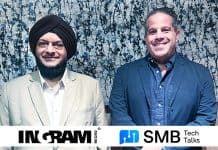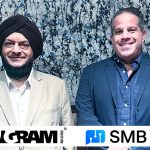Call for Code founding partner IBM and its creator, David Clark Cause, announced the winner of the fourth annual Call for Code Global Challenge, which invited innovators across the globe to combat climate change with open source-powered technology. Call for Code is the largest and most ambitious effort to bring together the world’s software developers to take on pressing societal issues by using the latest advanced technologies to problem solve and create cutting-edge solutions. The top prize this year went to Saaf Water, an accessible water quality sensor and analytics platform created, in particular, for people living in rural localities.
In Bihar, India, nine members of the same family died over the past 20 years due to sicknesses linked to arsenic contamination of groundwater. More have experienced illness, including the mother of one of the Saaf Water team members, who lives in Goa, India. Moved to prevent further suffering in their community and around the world, Saaf Water built a solution using IBM Cloud and IBM Watson services to address the need for making water quality information accessible and easy to understand. The hardware-software platform, once installed, is designed to monitor groundwater and provide a water quality summary along with suggested purification methods.
Saaf Water will receive $200,000 and support to incubate, test, and deploy their solution from the IBM Service Corps and expert partners in the Call for Code ecosystem. The India-based team will also receive assistance from The Linux Foundation to open source their application so developers around the world can improve, scale, and use the technology.
“The groundwater quality monitoring tool developed by Saaf Water is promising, timely, and appears to have great potential for use by communities relying on groundwater for domestic use,” said Dr. Annapurna Vancheswaran, Managing Director, The Nature Conservancy – India. “This open-source technology could help avoid water-related health risks by indicating unsafe water quality. We certainly Look forward to the tool being scaled up for the benefit of communities.”
A panel of some of the most eminent leaders in sustainability, business and technology, including former President Bill Clinton, awarded Saaf Water the grand prize. Four runners-up were also recognized. Each finalist created a solution to problems addressing the climate change competition’s three sub-themes: clean water and sanitation; zero hunger; and responsible production and green consumption.
To date, more than 20,000 Call for Code applications have been built using open source-powered software such as Red Hat OpenShift, IBM Cloud, IBM Watson, and IBM Blockchain, as well as data from IBM’s The Weather Company and developer resources and APIs from partners like Esri and Twilio. Fourteen Call for Code projects have been adopted into open governance by the Linux Foundation.
“It’s incredibly inspiring to see the Call for Code global movement continue to grow, now with more than 500,000 developers and problem solvers participating across 180 nations,” said Bob Lord, senior vice president, worldwide ecosystems, IBM. “What makes Call for Code unique is the impact it is making on the ground through our deployments in communities around the world. The potential of these technologies, like Saaf Water, are vast and have the potential help save lives.”
2021 Top Solutions Tackling Climate Change
Four climate solutions were honored in addition to Saaf Water: Green Farm, an app to make agriculture more sustainable by, among other things, connecting local producers and consumers to each other, was awarded second place and $25,000; Project Scavenger, an app to enable individuals to responsibly dispose of their devices, was awarded third place and $25,000; Honestly, an online browser extension aimed at passing supply chain transparency to consumers, was awarded fourth place and $10,000; and Plenti, a mobile application designed to make inventory tracking and waste measurement processes user-friendly and easy to do at home, was awarded fifth place and $10,000.
“Since we launched Call for Code in 2018, developers and innovators from around the world continue to answer the call,” said David Clark, Call for Code creator, and CEO of David Clark Cause. “I continue to be amazed by the impact of Call for Code, in no small part thanks to the global reach and passion of IBMers driving it forward around the world, and to the support of our dedicated partners including The Linux Foundation and United Nations Human Rights.”
In total, 42 regional finalists and the local winners among them from Asia Pacific; Europe; Greater China; India; Latin America; the Middle East and Africa; and North America were celebrated at the event.
Winner in the University Category
Chelsea Clinton, vice chair, The Clinton Foundation, announced the winner of the Call for Code University Edition, a collaboration between IBM and the Clinton Global Initiative University.
Trashtag, technology using AI, blockchain, and cloud to verify, track, and reward waste removal in outdoor areas, took the top prize and will receive $10,000 as well as an invitation for team members to interview for potential roles at IBM.
Bringing Call for Code solutions to life through real-world deployments
The Call for Code ecosystem brings solutions to life through incubation and real-world deployments. Since winning the 2020 Call for Code Global Challenge, Agrolly has scaled its personalized farming technology app to more than 1,600 rural farmers across India and Mongolia.
In 2021, Prometeo, the winner of the 2019 Call for Code Global Challenge, open sourced its firefighter health monitoring and safety technology through the Pyrrha project governed by The Linux Foundation.
Additionally, during National Voter Education Week in October, IBM and the YMCA of Metropolitan Los Angeles deployed Call for Code for Racial Justice project Five Fifths Voter, a web-based application to help educate, empower and enable voters who are part of underrepresented and disenfranchised communities, in the United States.
If you have an interesting article / experience / case study to share, please get in touch with us at [email protected]














